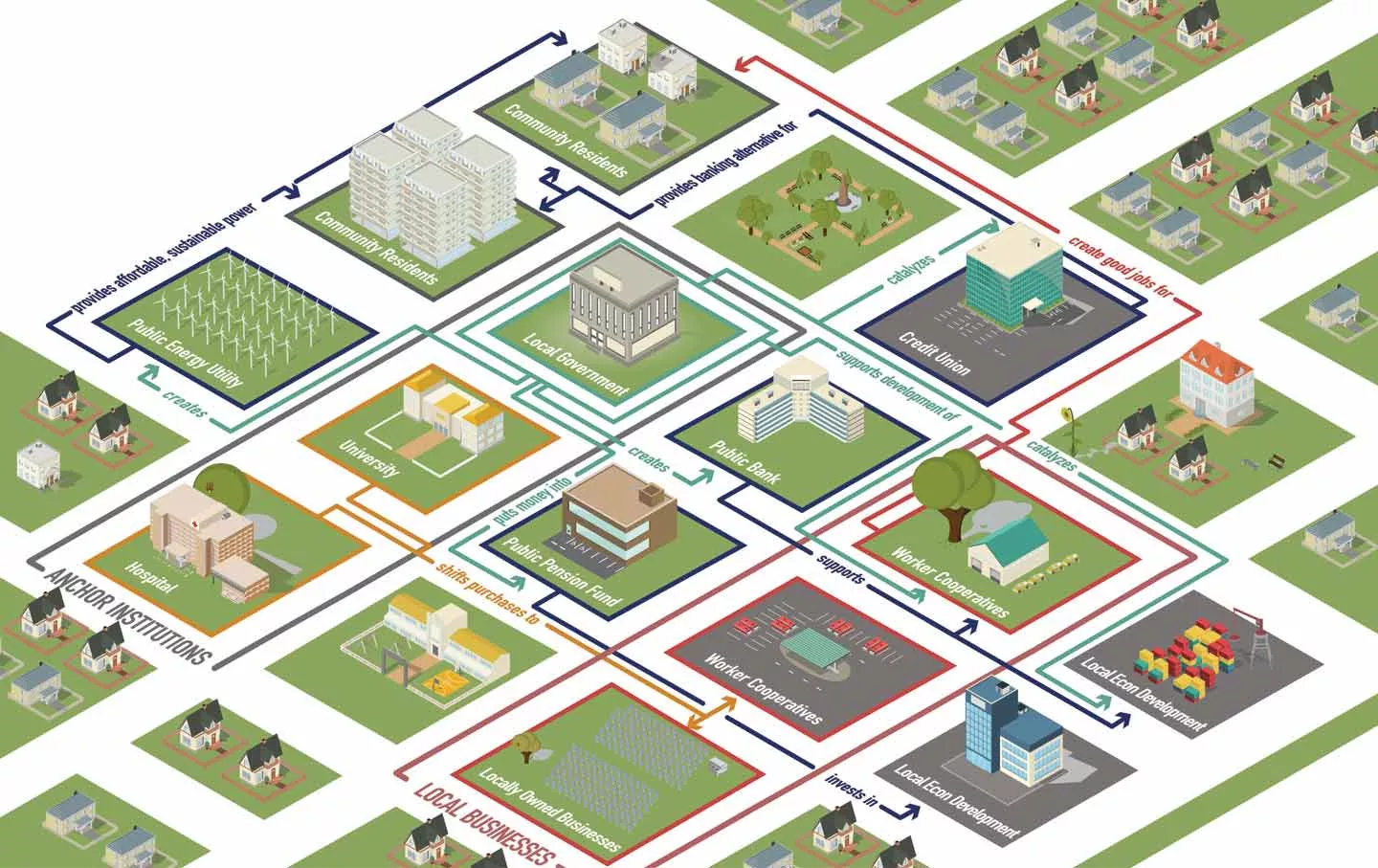Writing in The Nation, Laura Flanders explores the model of “survival socialism” being developed by the Labour Party in the UK, which has been reinvigorated and reshaped under the leadership of Jeremy Corbyn. While the Labour Party in not currently in power at the national level, it has been engaging in extensive grassroots and local political organizing. As Flanders writes, local representatives and party members have been implementing innovative economic initiatives such a cooperative business structures and living wage policies—efforts to fight back against the finance-led economics that have devastated the UK’s working class. The hope is that if Corbyn’s Labour Party continues to build grassroots support, this will translated to national electoral victories and the implementation of these policies on a national level. Here’s an excerpt from Flanders’s piece:
Survival socialism, as in the Preston model, is a way of regenerating a locality, helping it recover from the assaults of the past while preparing for the challenges of the future, such as automation. “Socialism is fundamentally important,” McInroy says, “because if you don’t have that plural ownership of wealth and means of production, we’re absolutely condemning millions of people to low wages [and] poor conditions in perpetuity.”
Yet the Preston model is also just a starting point. While Labour supports cooperatives as the best option in the private sector, its priority is to put more production back into public hands at the regional as well as the national level. “Put [government funds] back into the bottom of the system,” McDonnell explains, “because that’s where real changes all come from.”
Image: Dylan Petrohilos for The Next System Project. Via The Nation.
